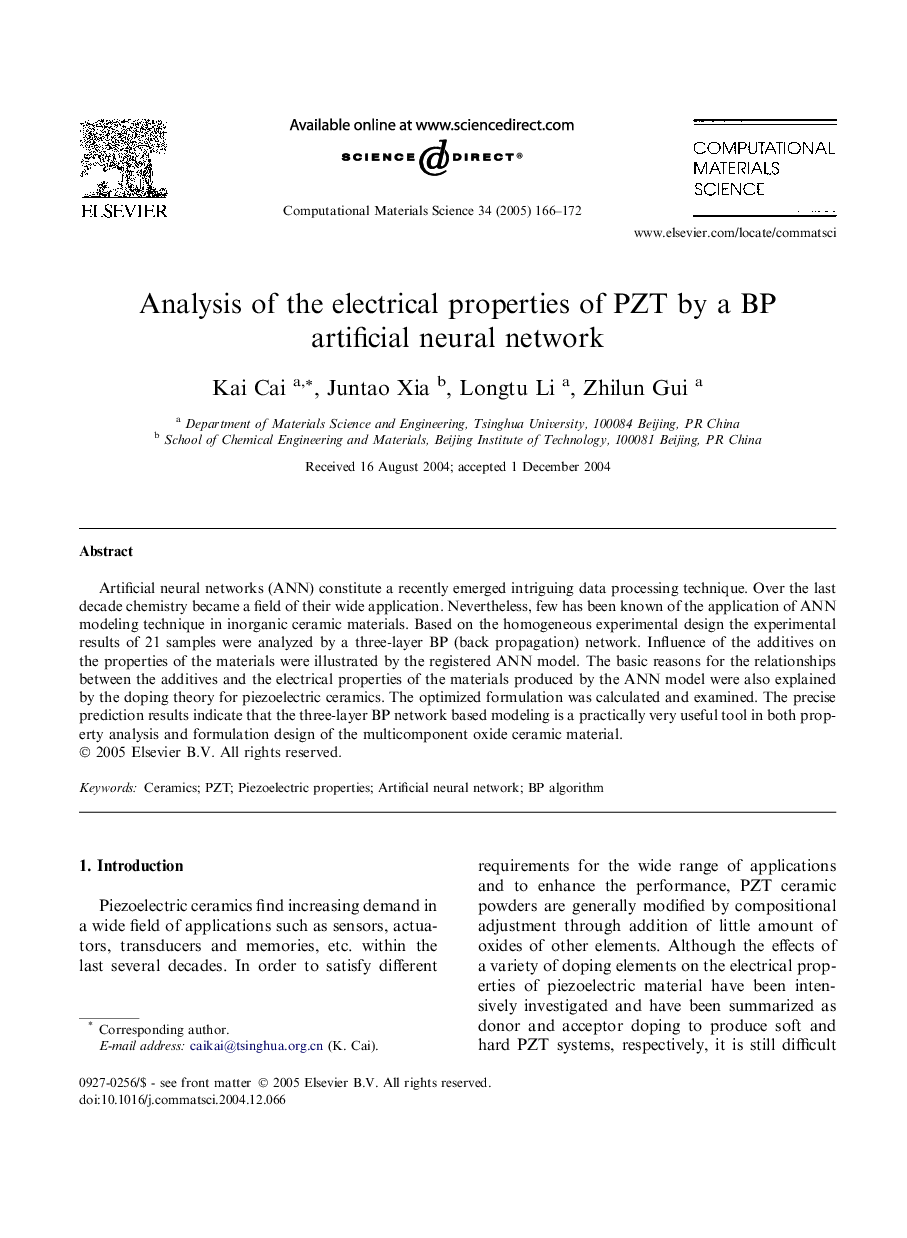| Article ID | Journal | Published Year | Pages | File Type |
|---|---|---|---|---|
| 10644588 | Computational Materials Science | 2005 | 7 Pages |
Abstract
Artificial neural networks (ANN) constitute a recently emerged intriguing data processing technique. Over the last decade chemistry became a field of their wide application. Nevertheless, few has been known of the application of ANN modeling technique in inorganic ceramic materials. Based on the homogeneous experimental design the experimental results of 21 samples were analyzed by a three-layer BP (back propagation) network. Influence of the additives on the properties of the materials were illustrated by the registered ANN model. The basic reasons for the relationships between the additives and the electrical properties of the materials produced by the ANN model were also explained by the doping theory for piezoelectric ceramics. The optimized formulation was calculated and examined. The precise prediction results indicate that the three-layer BP network based modeling is a practically very useful tool in both property analysis and formulation design of the multicomponent oxide ceramic material.
Related Topics
Physical Sciences and Engineering
Engineering
Computational Mechanics
Authors
Kai Cai, Juntao Xia, Longtu Li, Zhilun Gui,
